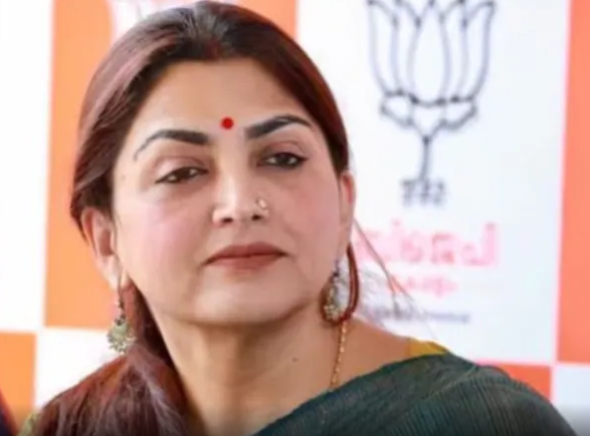Khushbu Sundar, a prominent figure in Indian cinema and politics, recently revealed her traumatic experience of being sexually abused by her father. Her courageous disclosure adds to the ongoing conversation about sexual abuse, particularly in the context of the #MeToo movement, and sheds light on the broader cultural and societal issues surrounding abuse in India. This article delves deeper into her story, the impact of the #MeToo movement, and actionable steps for survivors.
Khushbu Sundar’s Courageous Revelation
Khushbu Sundar disclosed that she was sexually abused by her father from the age of eight until she was 15. Her story is a stark reminder of the prevalence of sexual abuse within families, a topic that is often shrouded in silence due to societal stigma. Khushbu’s decision to speak out highlights the importance of breaking the silence and encourages other survivors to come forward.
Khushbu Sundar The Role of the #MeToo Movement
The #MeToo movement, which began as a social media campaign, has become a powerful platform for survivors to share their stories. Khushbu’s revelation is a significant contribution to this movement, especially within the context of Indian society, where discussions around sexual abuse are often taboo. The movement has brought attention to the widespread nature of sexual harassment and abuse, particularly in the film industry.
Impact of Sexual Abuse in India: A Cultural Analysis
Sexual abuse in India is a pervasive issue, exacerbated by deep-rooted cultural norms that often prioritize family honor over the well-being of individuals. Victims are frequently silenced by fear of societal judgment, making Khushbu Sundar story all the more significant. Her willingness to speak out challenges these cultural norms and provides a voice for those who have been silenced.
Legal and Social Support for Survivors
In recent years, India has seen the introduction of stricter laws against sexual abuse, including the Protection of Children from Sexual Offences (POCSO) Act. However, legal measures alone are not enough. Survivors need comprehensive support systems that include psychological counseling, legal assistance, and societal acceptance. Khushbu Sundar story underscores the need for these resources to be more accessible.
Addressing the Silence: How to Support Survivors
Survivors of sexual abuse need a supportive environment where they can share their experiences without fear of judgment. This includes creating safe spaces within communities, improving access to mental health services, and educating the public about the signs of abuse and the importance of listening to survivors. Khushbu’s advocacy work serves as a model for how public figures can use their platform to effect change.
Moving Forward: What Can Be Done?
- Strengthening Legal Frameworks: There is a need for more stringent enforcement of laws related to sexual abuse and better protection for survivors who come forward.
- Public Awareness Campaigns: Raising awareness about the prevalence of sexual abuse and the importance of supporting survivors is crucial in changing societal attitudes.
- Support Networks: Establishing networks of support, including hotlines, shelters, and counseling services, can provide survivors with the help they need.
Conclusion
Khushbu Sundar’s revelation is a powerful reminder of the pervasive issue of sexual abuse in India. Her story not only highlights the importance of the #MeToo movement but also underscores the need for a more supportive environment for survivors. As society continues to grapple with these issues, it is essential to prioritize the voices of survivors and work towards creating a culture where they feel safe to speak out.








